Raising biracial children is a unique experience. Parents of biracial kids often face challenges in helping their kids develop healthy cultural identities that other parents may not. If you’re not biracial yourself, you may find it difficult to understand what it’s like to belong to multiple ethnic groups. A white mother raising a biracial child might work towards understanding experiences her children may encounter. Even still, we’re responsible to facilitate that growth for our children and, as it relates to their biracial identity, help to foster positive mindsets.
This duality makes it difficult to relate to your mixed child’s experience and ultimately help them navigate certain challenges posed by society. And if you’re a single parent to multiracial children, these challenges can be even greater. Here are a few suggestions that could help promote healthy biracial identities in your mixed race babies.
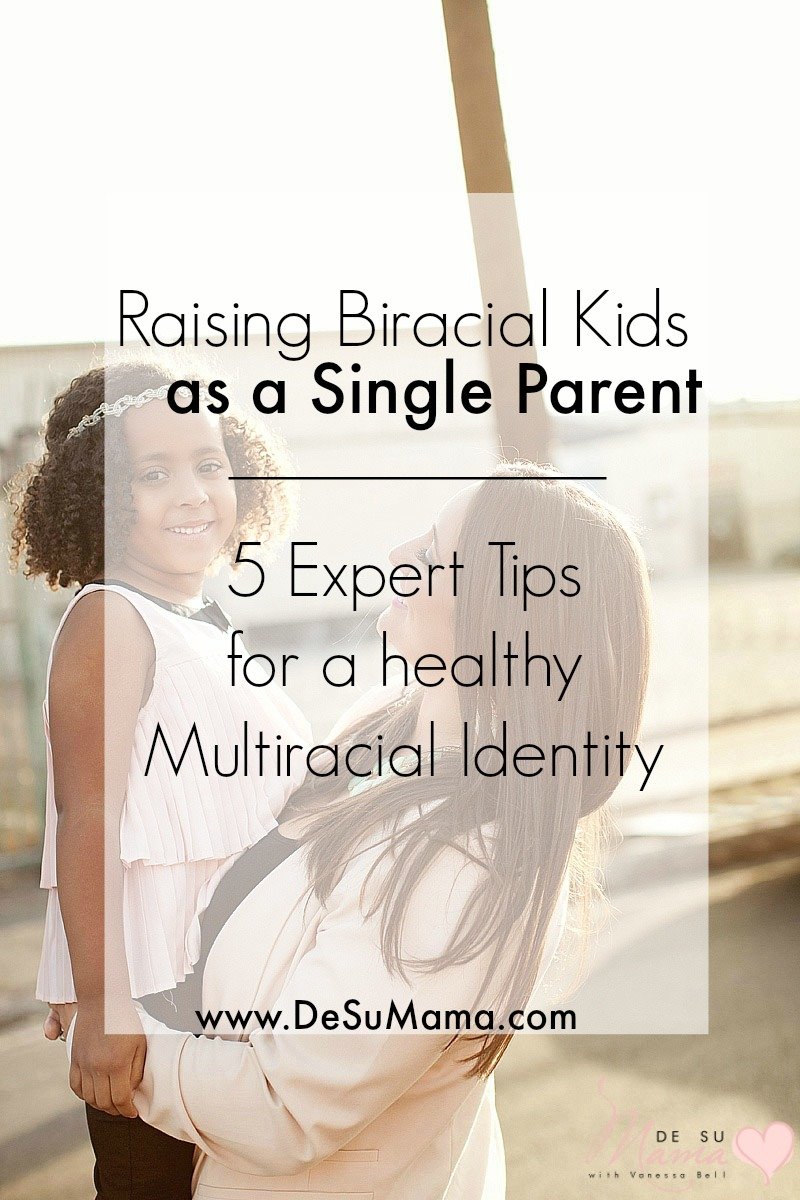 Raising Biracial Children As A Single Parent
Raising Biracial Children As A Single Parent
1. Self-awareness: This means knowing your own racial/cultural values, beliefs and biases. Self-awareness is also understanding how our own experiences and hang-ups affect how we raise our children. If you have negative beliefs about the other parent’s racial background (or your own), your children will internalize those messages. Sometimes we have blind spots – attitudes towards others that we communicate unconsciously. Even though you never said “I love your father, but don’t like his people…”, your child can still pick up on that vibe.
Some questions for parents of multiracial children to ask themselves are:
- Is my own racial/cultural identity important to me? If so, how?
- Am I comfortable discussing racial identity?
- Do I have any negative beliefs or feelings towards their father’s/mother’s racial group?
- If so, how am I acting those out in my language, behaviors, or distance?
- What are my fears related to my child’s biracial identity?
- Check out this post on 10 Tips To Help Your Biracial Child Answer “What are you?”
2. Language: Words are loaded with meaning that our children internalize. Even more so when children are being raised by only one of their parents! Promote healthy biracial identity by using only positive adjectives that aren’t stigmatizing to your child’s racial makeup. Avoid generic terms like “nappy”, “fair skin”, or “pelo malo” etc. that have connotations that promote subversive racism. Also, pay attention to the tone, affect, and context in which you use when discussing race and culture. Kids are good at extracting meaning from HOW you say things, more so than WHAT you say.
“You have your father’s nose” could have a different meaning to a child depending on the tone in which the statement is made. It’s just as important to correct (educate) family members about words not to use in reference to racial identity. You may have family members who don’t agree with interracial relationships and make negative comments when the kids visit.
- Create a list of the words that you regularly use to describe racial/cultural attributes (physical traits, speech, customs, behavior, etc.). How many of these would you feel proud of?
- Replace any stigmatizing words with ones that accurately describe these attributes.
3. Education: Teaching children about their ancestry and history helps them to understand who they are and where they come from, instilling a sense of pride. Knowing both families cultural histories can help your kids feel connected to each community to which they belong. With this, they feel confident in answering questions like “what are you?”
Cultural education can come from:
- History books or biographies found online or at the library.
- Storytelling. Some of the best history lessons come from grandparents and other family elders or loved ones.
- A family tree project is a good way to teach cultural heritage, and it’s something you can do together!
- Other single parents of multiracial children! This day in age, there are groups and forums for all genres of interest. Find a community of like-minded parents – whether online or off – and learn from each other. Check out this post for 10 Terms Parents of Biracial Children Need To Know.
- Identify positive famous or influential people who are also biracial or share your child’s cultural heritage. Celebrity tends to make things cool!
- If the other parent is not in their lives, you can reach out to family, community members, or take the reigns on exploring your child’s family history with sites like ancestry.com where you can even find documents such as census reports, birth and death certificates.
Ultimately, showing interest in your biracial child’s full racial makeup will allow them to honor all parts of their identity.
4. Diverse Environments: Raising your children in a multicultural environment will help them understand the value in culture and develop an appreciation for diversity. Being in a homogeneous environment can make them feel like an “other” or “outsider”. Having peers of various ethnic backgrounds makes diversity the norm, instead of something odd or exotic. These are a few ways to provide kids with diverse environments:
- Choose a neighborhood and school with an ethnically diverse population.
- Involve them in extracurricular activities where they’ll have opportunities to connect with kids from different backgrounds.
- Develop friendships with other parents of biracial children.
5. Dialogue: Have open discussions about race, culture, and discrimination. Be willing to listen and validate their experiences, keeping in mind that your child’s experience in the world is different from yours. When they deal with offensive comments or questions, you can coach them on how to respond. If your child is feeling insecure about being biracial, this is an opportunity to empower them with knowledge and understanding of their background.
You want them to receive the overall message (from you, the single parent) that it’s okay to talk about race and that being biracial is not a taboo. This all begins with assessing your own attitudes and comfort level and having a positive approach.
Remember that ultimately, your child will decide how they choose to identify. We have a significant influence on this, which could either be positive or negative. Provide them with the love, knowledge, and positive experiences that allow them to take ownership and pride in their identities.
It’s impossible to shield kids from the world’s negativity and judgment. However, with the necessary support and guidance, multiracial and biracial children can still develop healthy identities… regardless of how many parents are raising them.

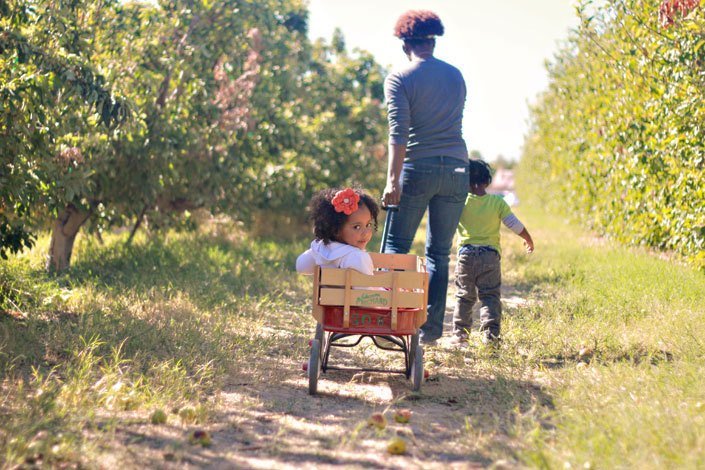
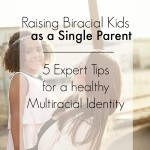
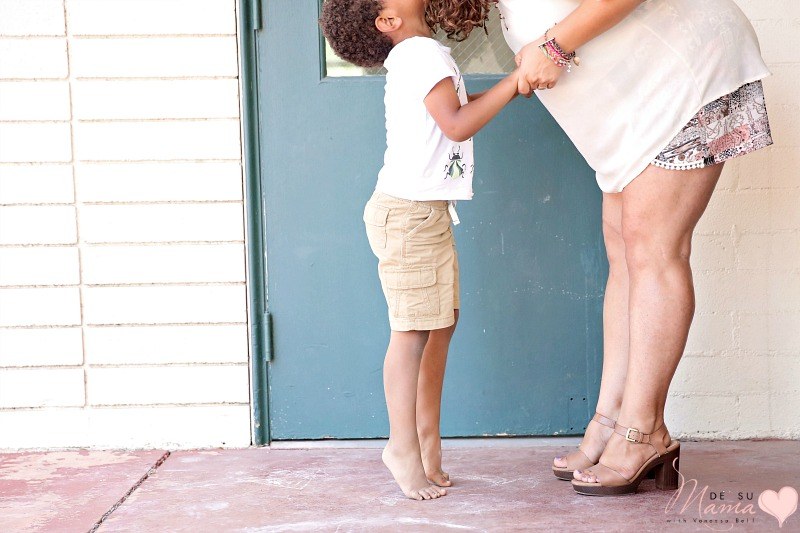
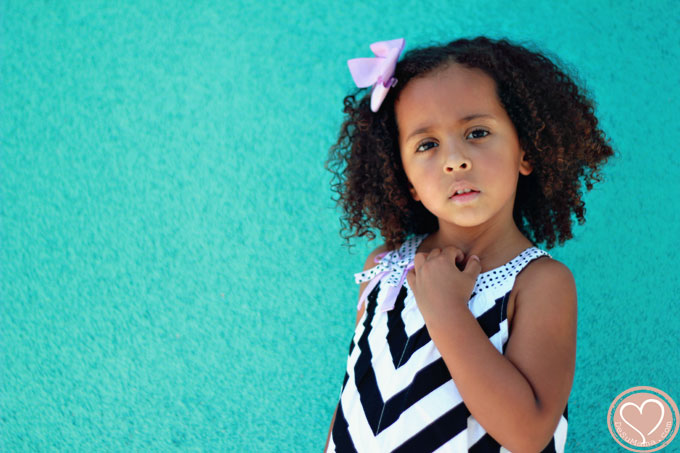
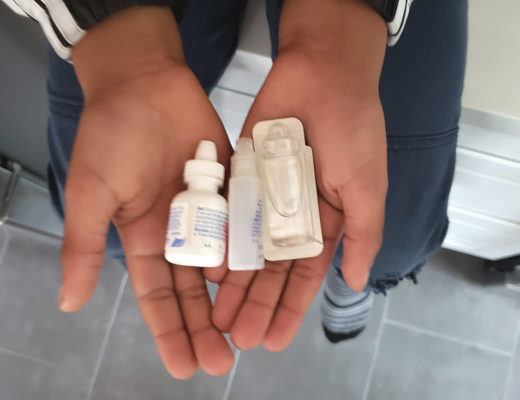

Danielle
April 4, 2016 at 5:22 pmAs an adoptive mother to bi- racial children I try as much as I can to embrace all of which they are. I have two that are Hispanic white and African American and two Caucasian and African American. I always tell them when they get older mark all that applies and to embrace their curls and straight hair. It’s hard enough with my husband and I looking different they get the questions and stares. It’s their choice if they want to tell their story. But I want them to feel confident and secure with themselves. Great article!
Brittany
April 2, 2017 at 11:44 pmAs a single parent to a biracial baby I found this article a good source of information. I do have a few questions if I’m approaching situations correctly when asked about race on documents I have chosen to mark decline. I know from college classes on socialolgy that bias is real thing that happens early on and I’m worried that if I mark Asian/Caucasian that automatically those reading the forms will form negative thoughts about my child. If figure if the race section isn’t there to be used for discrimination then why have it at all. Second I heard from countless people that my child isn’t mixed and shouldn’t even mention it to anyone because nobody can tell. I have only shared my child’s mixed heritage to those I trust family members and friends with mixed children. What are your thoughts?
Vanessa Bell
April 6, 2017 at 7:28 amHi Brittany! Well, I’m not sure anyone can tell you whether or not your child is mixed. I mean – if he’s of mixed race, he’s mixed. Right? Race is a social construct, so I understand what you’re saying, but the reality is that we’re often judged by our appearances… whether or not you check the box or not. My word of advice is to teach your child the richness of their background without focusing on labels. Provide support for when he is ready to establish his own personal identity. Hope that helps!